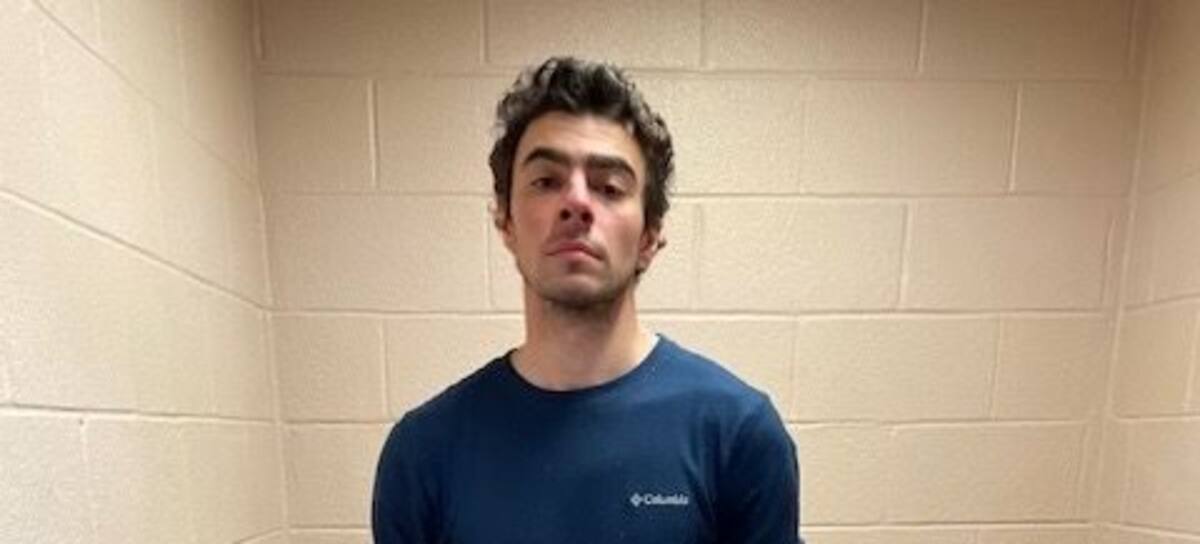The Luigi Mangione Case: Alleged Motive Behind the CEO’s Murder
The 26-year-old man has been arrested on December 9 as the primary suspect in the murder of Brian Thompson, the CEO of UnitedHealthcare

ALTOONA, PENNSYLVANIA - DECEMBER 09: (EDITOR’S NOTE: This Handout image was provided by a third-party organization and may not adhere to Getty Images’ editorial policy.) In this handout photo released by the Altoona Police Department, Luigi Mangione is seen in a holding cell after being taken into custody on December 9, 2024 in Altoona, Pennsylvania. According to the Pennsylvania Department of Corrections, Mangione, the suspect in the shooting of UnitedHealthcare CEO Brian Thompson in New York City, has been moved to the State Correctional Institution (SCI) in Huntingdon, Pennsylvania. (Photo by Altoona Police Department via Getty Images)
If you’ve been following social media or news outlets in the past few hours, you may have seen the face of Luigi Mangione multiple times. He is a 26-year-old man who was arrested on December 9 as the primary suspect in the murder of Brian Thompson, the CEO of UnitedHealthcare, the largest health insurance company in the United States.
This crime took place early in the morning on December 4 in New York. The attacker, whose face was always covered, left his hostel at 5:30 a.m., heading toward the area near the Hilton hotel, where the insurance company was hosting its annual investor summit. Around 6:30 a.m., the assailant shot Thompson on the street. Nearby surveillance cameras played a crucial role in apprehending the suspect nearly a week later at a McDonald’s in Pennsylvania, approximately 250 miles away from the crime scene.
Mangione’s casi is one of the most high-profile crimes of 2024, drawing as much attention and virality as the Diddy scandals.
Public Shock and Mangione’s Background
This case has generated significant public shock, particularly due to Luigi Mangione’s seemingly “exemplary” image. He is part of one of Baltimore’s wealthiest families, a business network tied to real estate. This family is known for owning country clubs, nursing homes, and even a radio station, according to local media.
Mangione had a privileged education. He attended Gilman School, becoming the top student of his generation, and later graduated in Computer Science from the University of Pennsylvania. Until the previous year, he worked as a Data Engineer at TrueCar. He also lived in a surfing community in Hawaii called Surfbreak, but left due to a back injury, which would later be speculated as a potential motive for the murder.
The Murder of Brian Thompson
During his arrest, Luigi Mangione was found with a ghost gun (a weapon made privately without serial numbers, untraceable in government databases), a fake ID, and a manuscript outlining his motives for the crime. According to information given to The New York Times, these pages expressed «malice» toward American insurance companies, with notes such as «These parasites deserved it» and «I apologize for any conflict or trauma, but it had to be done.»
Additionally, shell casings found at the crime scene contained three words inscribed on them, known in the insurance world as the three «Ds»: delay, deny, depose. These terms are often associated with insurance companies’ practices of rejecting claims, which highlights issues of denial and lack of accessibility in healthcare coverage.
The Motivation and Back Injury
Several media outlets suggest that Mangione’s back injury might be the key motive for his actions. A post on his X account (formerly Twitter) showed a spinal X-ray with a medical device, possibly reflecting his physical struggles. His Goodreads account, a book review platform, also reveals his interest in back pain and healthcare critiques, including a book titled «Crooked: Outwitting the Back Pain Industry.»
On Goodreads, Mangione even gave a positive review to «Industrial Society and Its Future» by Theodore Kaczynski, the infamous Unabomber. Mangione viewed Kaczynski as a political revolutionary rather than just a violent criminal.
U.S. Healthcare Crisis
As widely known, the United States is experiencing a longstanding healthcare crisis. The U.S. spends more on healthcare than any other nation (over 16% of its GDP) with a multi-payer system, but lacks universal healthcare coverage. Medical costs often fall heavily on patients through premiums, deductibles, and high copays, leaving many underinsured or unable to afford basic healthcare services.
Insurance companies are crucial in deciding whether to approve or deny healthcare coverage for clients. This struggle is visible in Brian Thompson’s social media profiles, where many individuals expressed frustration after being denied healthcare coverage during critical moments. It is estimated that 26 million Americans remain uninsured. Furthermore, a 2023 KFF survey indicated that nearly 60% of insured adults experienced issues with their health insurance companies within a year.
Mortality and Healthcare Coverage Gaps
Although studies remain limited, the 2009 research published in the American Journal of Public Health estimated that 45,000 Americans die each year due to a lack of health insurance coverage. This highlights the severe implications of healthcare accessibility issues and the ongoing struggle within the American healthcare system.
By addressing these ongoing challenges, including untraceable weapons, healthcare inequity, and financial barriers, it becomes evident that reforms are necessary to address systemic gaps in the U.S. healthcare and insurance landscape.
Ana Rojas
Periodista en LOS40, coordinando LOS40 USA y colaborando también en El País. Cubro temas de música,...
